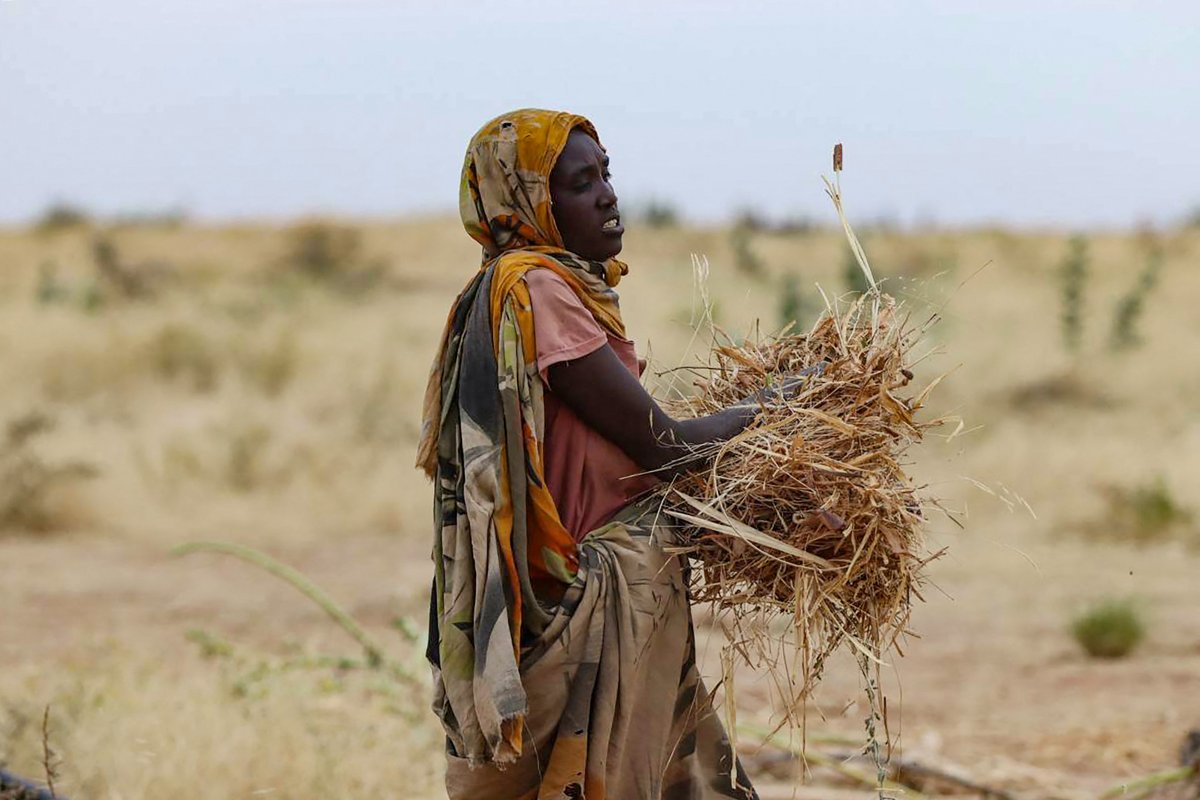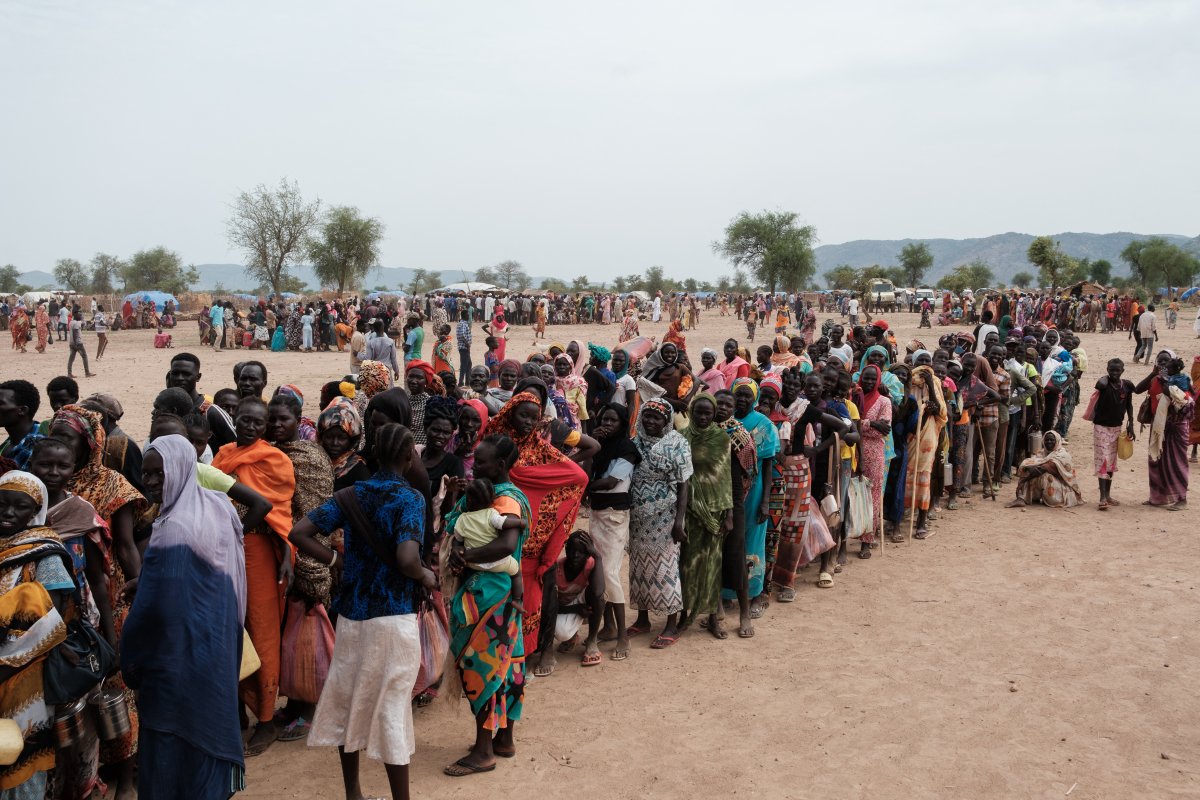After President Donald Trump‘s controversial move to stop funding the United States Agency for International Development, (USAID), according to many aid groups on the ground in Sudan, an acute humanitarian crisis is developing.
Elon Musk stated last week: “We fed USAID to the wood chipper over the weekend.” Musk had previously attacked the organization, calling it a “radical left political psy op” as well as a “criminal organisation.” He said that it was now time to end USAID’s activities.

A Vital Lifeline is Gone Overnight
Before the USAID freeze on funding, millions of IDPs in Sudan were supported by a network of kitchens. Half of Sudan’s 50,000,000 inhabitants are now dependent on food aid due to the Sudanese Civil War. Islamist militias with their allies and military are in a fierce conflict as widespread famine approaches. The United States accuses a paramilitary of genocide.
“This is a matter of life and death for hundreds of thousands of Sudanese people,” warned Avril Benoît, Executive Director of Médecins Sans Frontières (Doctors Without Borders) USA. If we do not act now, whole communities could be destroyed by famine long before the international community becomes aware. And ‘famine’ is not a term we use casually.”
USAID is the biggest financial contributor in the history of humanitarian interventions. Funds are allocated through a variety of non-government organizations (NGOs), ensuring that the aid reaches those populations who need it most.
USAID humanitarian assistance in Sudan and the surrounding nations since April 2023 when conflict broke out has reached over $2 billion. Abuzar Osman, Coordinator of Emergency Response Rooms, said that over 80% have had to close due to the sudden halt of funding.
ERRs (Emergency Relief and Rehabilitation) are grassroots groups that provide immediate relief. In Khartoum, they operated over 7,000 kitchens. Over 95% of the communal kitchens have now ceased operation due to lack of funding.
Suliman explained that it costs about $10,000 to feed 250 Darfur families properly for a two-week period. These communities now have no resources.

Starvation Weaponized in Conflict Zones
Situations are becoming more and more dire for those trapped by active conflicts. Scarcity of food is strategically weaponized by regions like Darfur and the Nuba Mountains. The Sudanese Armed Forces and Rapid Support Forces paramilitary groups have both been accused of using starvation against civilians.
“The RSF displays a flagrant disregard for international laws, human rights, or humanitarian principles. They simply do not care,” emphasized Benoît. “They have a reputation as being an incredibly ruthless force of combatants and they now seek revenge for territorial losses.
The food distribution network has collapsed in the Zamzam IDP Camp which is home to nearly one million civilians who have been displaced. Aid workers report critical levels of hunger, compelling individuals to make impossible decisions – remain in the camp and face starvation, or attempt to flee through territory controlled by the RSF, a journey fraught with violence, robbery, and potential death.
“The vast majority of people are arriving at the camp with virtually no possessions, having been forcibly displaced by the RSF,” Benoît detailed. “Meanwhile, critical humanitarian supplies are accumulating in Adré, a city near the Sudan-Chad border, but are unable to get through the blockade. The essential food is rotting in the open.
Sudan’s health infrastructure, which is also in danger of collapsing, has exacerbated the situation.
Andrea Tracy, a retired USAID official who is now associated with Proximity 2 Humanity, said that there are only a few International Non-Governmental Organizations still operating, in spite of the fact that the conflict may have subsided.
The Emergency Response Rooms play an important role, she said. Around 2 million people depend on the Emergency Response Rooms each month. The severe USAID cuts are forcing NGOs to drastically reduce their activities. It puts undue strain on ERRs and forces them to achieve more using even less resources.

There is a growing security crisis in the region and the Sudan
Security analysts say that while humanitarian agencies are working to address the growing need, the sudden USAID closure could have broader implications that may destabilize the entire region.
Tracy warns that when people lack other choices, they may turn to violent groups to survive.
Sudan’s geopolitical importance is a major concern. Sudan, which borders Chad and Libya as well as Egypt, is situated in central Africa. This makes it a fertile area for terrorist groups to spread their influence.
Eric Reeves a Sudanese expert and professor Emeritus at Smith College says Sudan is long a major hub of armed insurgencies. Recent USAID withdrawl could speed up this process and undermine efforts to maintain stability.
Reeves explained that by cutting off the aid to the area, the U.S. was effectively pushing more youths into the militant groups in the region. “This is precisely how extremist movements successfully recruit new members – they intentionally flourish in areas with no functioning government, no outside assistance, and a severe lack of hope for the future.”
ISIS, al-Qaeda and their affiliates publicly celebrated Sudan’s increasing crisis. They saw it as a great opportunity to expand territorially and ideologically within the region.
Reeves stated that the RSF is recruiting new members at a rapid rate. The recruitment of such groups is primarily aimed at young men who lack food, education and prospects for their future.

One Nation Faced with Self-Defense
Sudanese aid workers appeal urgently, in the absence USAID, to private donors as well as international NGOs for continued vital support.
According to Suliman, a surge of grassroots donations – mainly from individuals in the U.S. – has provided some crucial relief to over-burdened local communities.
He said that “about seventy-five percent” of the emergency donation we received came from American citizens. The ordinary people that care about others, when even their government is not doing so.
Despite the growing support from the private sector, the crisis is still far beyond the local capacities. Aid agencies project that, if the USAID freeze is not reversed, Sudan will likely face a full-scale food shortage within months.
The humanitarian impact is overwhelming for those who have witnessed the pain first-hand.
“This is literally a matter of life and death,” Benoît emphasized. Benoit said: “If we don’t act soon, widespread famine is going to devastate communities before international response can begin.”


